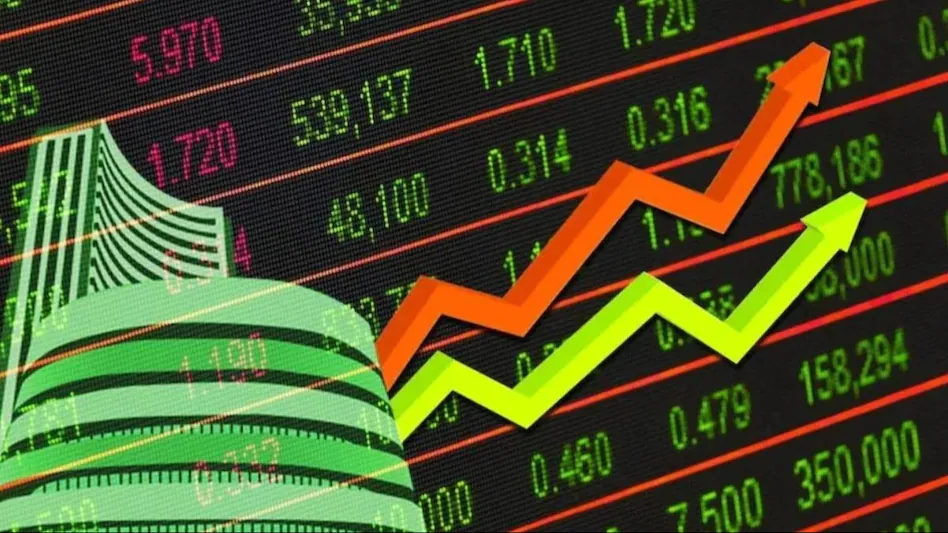Stocks and Share Markets
The concept of stocks and the share market is fundamental to modern business and finance. Stocks, also known as shares or equities, represent ownership in a company. When you buy a stock, you are purchasing a small piece of that company, making you a shareholder. Shareholders can benefit from owning stocks in two primary ways: through capital appreciation, which occurs when the stock’s price increases, and through dividends, which are periodic payments made by the company out of its profits to its shareholders.

The share market, also known as the stock market or equity market, is a platform where these stocks are bought and sold. It consists of various stock exchanges, such as the New York Stock Exchange (NYSE) and the NASDAQ in the United States, the London Stock Exchange (LSE) in the United Kingdom, and others worldwide. These exchanges provide a regulated and transparent environment for trading shares, ensuring that transactions are conducted fairly and efficiently. Investors buy and sell stocks based on their perceptions of the company’s future performance. If investors believe a company will grow and become more profitable, they are more likely to buy its stock, driving up the price.
What are the benefits for a company to issue stocks ?
Issuing stocks allows a company to raise capital by selling ownership stakes in the form of shares to investors. This process, known as going public through an Initial Public Offering (IPO), opens up access to a vast pool of potential investors, significantly increasing the amount of capital that can be raised compared to private funding sources. The funds obtained from issuing stocks can be used for various purposes, such as expanding operations, developing new products, entering new markets, or acquiring other businesses. Additionally, it can help a company pay down existing debt, improving its financial stability and reducing interest expenses.
Being publicly traded also enhances a company’s visibility and credibility, which can be beneficial in several ways. A higher profile can attract more customers and business partners, boosting sales and fostering strategic alliances. Moreover, the liquidity provided by the public market means that early investors, including venture capitalists and company founders, can sell their shares more easily, potentially realizing significant returns on their investments.
Hodoes w the stock market facilitate investment and growth ?
The stock market plays a crucial role in facilitating investment and growth by providing a regulated platform where shares of publicly traded companies can be bought and sold. This market mechanism allows businesses to access capital from a diverse range of investors, including individuals, mutual funds, pension funds, and other institutional investors. When a company issues new shares, it raises money that can be used for various growth initiatives, such as expanding production capacity, investing in research and development, or entering new markets.
The stock market also provides liquidity, meaning investors can quickly buy or sell shares without significantly affecting the stock’s price. This liquidity is essential because it reduces the risk for investors, making them more willing to invest in companies. Moreover, the stock market helps allocate resources efficiently by directing capital towards companies that are perceived to have the best growth prospects.
What risks are associated with investing in the stock market ?
Investing in the stock market involves various risks that can affect the value of investments. Market risk refers to the possibility of losses due to fluctuations in the overall market conditions. These fluctuations can be caused by changes in economic indicators, interest rates, political events, or shifts in investor sentiment. Company-specific risks are related to the performance and management of individual companies. Poor management decisions, competitive pressures, financial mismanagement, or changes in industry dynamics can negatively impact a company’s stock price.
Liquidity risk is another concern, especially with less actively traded stocks. If an investor needs to sell a large number of shares quickly, it may be difficult to do so without affecting the stock’s price. Additionally, there are risks associated with timing the market, as buying or selling at the wrong time can lead to significant losses.
How do dividends benefit shareholders ?
Dividends are payments made by a company to its shareholders out of its profits. They provide shareholders with a regular income stream in addition to any capital gains realized from the appreciation of the stock’s price. For many investors, especially retirees or those seeking steady income, dividends are an attractive feature of a stock investment. Receiving dividends can help provide cash flow without having to sell shares, allowing investors to maintain their ownership in the company while still benefiting financially.
Reinvesting dividends can significantly enhance the overall growth of an investment through the power of compounding. By using dividends to purchase additional shares, investors can increase their holdings over time, leading to potentially higher returns. Companies that consistently pay dividends are often perceived as financially stable and reliable, which can boost investor confidence.
What is the significance of stock market indices ?
Stock market indices, such as the S&P 500, Dow Jones Industrial Average, and NASDAQ Composite, are crucial benchmarks for measuring the performance of the overall market or specific sectors within the market. These indices track a group of selected stocks and reflect their collective price movements, offering a snapshot of market trends and investor sentiment. For investors and analysts, indices serve as a barometer of economic health and market conditions.
Investors use indices to gauge the performance of their own investments and to compare individual stocks or portfolios against the broader market. This comparison helps in evaluating whether their investments are performing better or worse than the market average. Indices also play a critical role in passive investing strategies, such as index funds and exchange-traded funds (ETFs), which aim to replicate the performance of a specific index.
How do global events impact the stock market ?
Global events can significantly impact the stock market by influencing investor sentiment, economic conditions, and market stability. Geopolitical conflicts, economic sanctions, natural disasters, and pandemics can create uncertainty and volatility in financial markets. For instance, a geopolitical conflict might disrupt trade, leading to supply chain issues and affecting the profitability of companies involved in international commerce. Such disruptions can cause investors to become risk-averse, leading to a decline in stock prices as they sell off their holdings.
Conversely, positive global developments, such as breakthroughs in international trade agreements, technological advancements, or favorable economic policies, can boost market confidence and drive stock prices higher. For example, the resolution of trade disputes can lead to increased business activity and economic growth, positively impacting the stock market. Investors closely monitor global events to assess potential risks and opportunities, adjusting their investment strategies accordingly. have far-reaching effects on markets worldwide, making it essential for investors to stay informed and agile in their decision-making.

Add a Comment